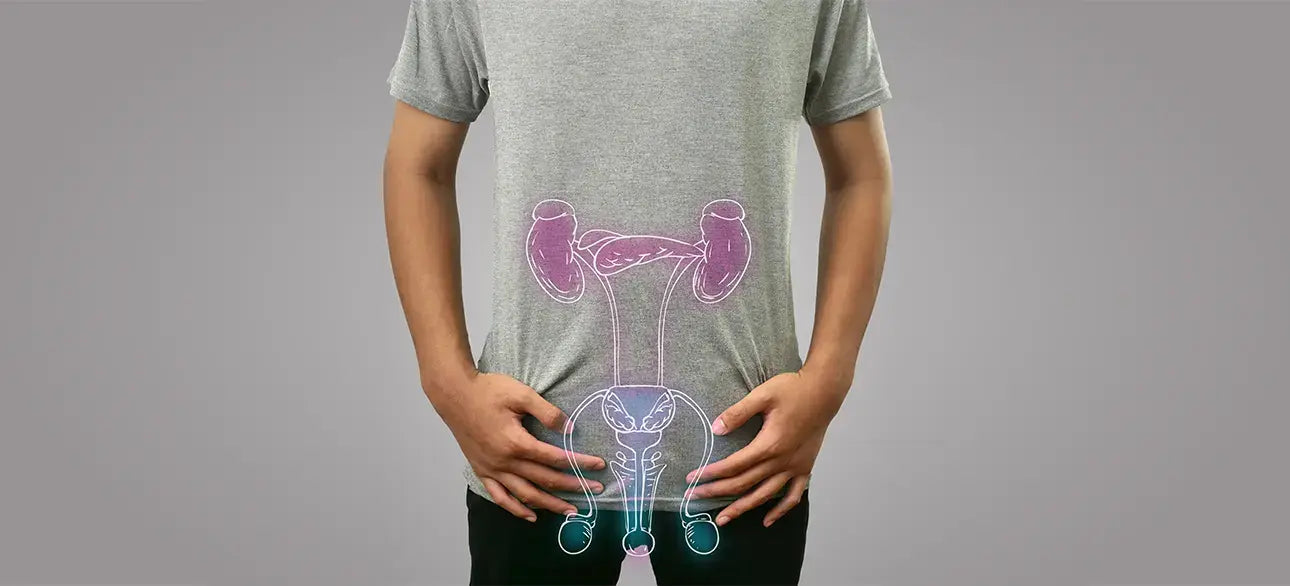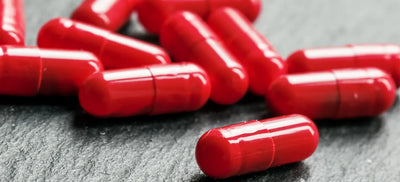How to Improve Urinary Flow and Prostate Health
Learn how to improve urinary flow and prostate health with effective lifestyle habits, diet changes, and natural strategies to promote comfort and better urinary function.
Advertiser Disclosure: We independently select all the products. If you click through links we provide, we may earn a commission.

Prostate health is one of the most important aspects of men’s health that is often overlooked. The prostate gland is a small organ that sits between the penis and the bladder and is an essential part of the male reproductive system.
The gland is essential for the production of seminal fluid, supports the sperm cells, and aids in ejaculation. It also plays a role in urinary health.
That is, poor prostate health can lead to prostate and urinary problems such as difficulty in urinating for men, frequent need to urinate, incomplete emptying of the bladder, and weak urine flow. These symptoms are not only uncomfortable and disruptive but may also signal more serious conditions, such as prostate cancer.
The prostate gland’s health is crucial for the overall well-being of men. Men can avoid prostate issues and increase urinary flow by staying on top of their prostate health through healthy lifestyle choices and regular check-ups, by choosing the best prostate health supplement to support their wellness.
Understanding Benign Prostatic Hyperplasia (BPH)
 Understanding Benign Prostatic Hyperplasia (BPH)
Understanding Benign Prostatic Hyperplasia (BPH)
Benign Prostatic Hyperplasia (BPH) is a non-cancerous enlargement of the prostate that commonly affects men as they grow older.
It occurs when the prostate enlarges and begins to press against the urethra, making it difficult for urine to flow freely.
While BPH doesn’t increase the risk of prostate cancer, untreated symptoms can lead to complications and make treatment more difficult over time.
Some of the key symptoms of BPH include:
- Frequent urination, especially at night (nocturia) – The urgent need to pee often causes you to even wake up more than once during the night to urinate.
- Weak or interrupted urine flow – Difficulty in maintaining consistency in the urinary flow. Some people say they can’t urinate standing up.
- Urgency and difficulty starting urination – Even when the bladder is full, you may experience trouble in beginning to urinate.
- A feeling of incomplete bladder emptying – Feeling like you still want to pee, even after you just urinated.
Lifestyle Changes to Improve Urinary Health
Diet and weight management
A balanced diet supports prostate health and lowers the risk of prostate-related issues. Vegetables like broccoli and cauliflower, tomatoes, nuts, pumpkin seeds, green tea, and fatty fish are examples of foods known to improve prostate peeing problems.
Obesity is linked to a higher likelihood of developing BPH. Reducing consumption of processed foods, sugar, red meats, and saturated fats can help manage weight and support prostate function. Limiting caffeine and alcohol intake can also ease urinary symptoms.
Exercise
Physical activity, including walking, swimming, yoga, and cycling, improves blood circulation and reduces inflammation, which may support urinary health. Pelvic floor exercises (Kegels) help strengthen muscles around the bladder and prostate, promoting better control.
Hydration
Drinking enough water keeps the bladder functioning efficiently. Proper hydration can help produce a stronger urine stream and improve bladder emptying. Dehydration, on the other hand, concentrates urine, irritating the bladder and increasing urgency.
Medication Options for BPH Relief
If lifestyle changes aren’t enough to manage BPH symptoms, medical treatment may be necessary. Consulting a doctor is essential to determine the best option.
Alpha Blockers are commonly prescribed to relax the muscles around the bladder and prostate, helping to ease urine flow. They don’t reduce the size of the prostate. Examples include Tamsulosin, Doxazosin, Alfuzosin, Terazosin, and Silodosin.
5-Alpha Reductase Inhibitors work differently by shrinking the prostate. They do this by reducing the hormone DHT (dihydrotestosterone). Common options include Dutasteride and Finasteride.
Side effects of Alpha Blockers can include headaches, dizziness, fatigue, low blood pressure, and nasal congestion.
5-Alpha Reductase Inhibitors may cause erectile dysfunction, reduced libido, and decreased ejaculation, though these effects are usually reversible upon stopping the medication.
If side effects persist, consult your doctor to adjust the dosage or switch medications.
During our research we came across a video on mdconversation that explains effective ways to enhance urinary flow and support prostate health
Alternative Therapies and Supplements
Herbal Supplements and Natural Remedies
Some men turn to herbal supplements to manage BPH symptoms naturally. These are plant-based and generally have fewer side effects.
Saw palmetto is one of the most well-known herbal treatments, with anti-inflammatory properties that may reduce prostate swelling by blocking hormone activity.
Green tea is rich in antioxidants, which may slow the progression of prostate issues. Lycopene, found in tomatoes, papaya, and other red fruits, has shown potential in improving symptoms and overall prostate health.
According to J. Matt Williams, MD -Urologist Herbal supplements like saw palmetto, green tea, and lycopene have shown potential in supporting prostate health by reducing inflammation and slowing the progression of symptoms. These natural options may provide relief with fewer side effects.
Safety and Efficacy of Supplements
Natural supplements can be safer alternatives when used responsibly. Saw palmetto and rye grass pollen have shown promise in reducing symptoms, while zinc supplements may lower prostate cancer risk.
However, it's always best to consult a healthcare provider before starting any supplements to ensure safety and correct dosage.
Techniques for Managing Symptoms
Double Voiding
Double voiding means urinating, waiting a few minutes, and trying to urinate again. This helps ensure the bladder empties more fully, which can reduce discomfort and urgency.
Stress Management
Stress can tighten pelvic muscles and worsen urinary symptoms. Practicing relaxation techniques like yoga, breathing exercises, or meditation may ease tension and improve quality of life.
When to Seek Medical Advice
If you notice blood in your urine, pain while urinating, sudden changes in your urinary patterns, or experience complete urine retention, it's time to see a urologist. Early intervention can prevent complications and lead to better treatment outcomes.
Surgical and Invasive Options
If medications don’t provide relief, several surgical options are available. Your doctor will recommend a procedure based on your condition and preferences.
Minimally invasive procedures, often done in outpatient settings, include:
- Prostatic Urethral Lift (PUL)
- Water Vapor Thermal Therapy (WVTT)
- Temporary Implanted Prostatic Devices (TIPD)
- Catheterization
- Prostate Artery Embolization (PAE)
More invasive surgeries, usually performed in hospitals, include:
- Transurethral Incision of the Prostate (TUIP)
- Photo-Selective Vaporization (PVP)
- Transurethral Resection of the Prostate (TURP)
- Transurethral Vaporization (TUVP)
- Transurethral Water-Jet Ablation (TWJA)
- Simple Prostatectomy
Conclusion
If you are at a point where you are asking questions like how to improve urine flow or how to increase urine output, maybe it’s time to consider getting your prostate health checked.
Also, consider adopting a healthy lifestyle, and more importantly, getting the right prostate supplement to supplement your diet can help reduce common prostate-related issues.
As in, today there are many solutions to prostate and urinary problems in men, ranging from natural remedies for enlarged Prostate, medication, and even surgical procedures, depending on the severity of the condition.
Men are, however, advised to prioritize prostate health by going for regular check-ups to avoid conditions like BPH and even prostate cancer.
FAQs
References
Flawless Bloom has strict sourcing policies and relies on primary sources such as medical organizations, academic institutions, governmental agencies, and peer-reviewed scientific journals. Read more about how we ensure our content is accurate, thorough, and unbiased by reading our editorial process.
- Benign Prostatic Hyperplasia https://www.ncbi.nlm.nih.gov/books/NBK558920/
- Effects of weight reduction in male patients with BPH https://pmc.ncbi.nlm.nih.gov/articles/PMC4355436/
- Benign prostatic hyperplasia https://en.wikipedia.org/wiki/Benign_prostatic_hyperplasia
- Treatment of Benign Prostatic Hyperplasia by Natural drugs https://pmc.ncbi.nlm.nih.gov/articles/PMC8659259/
- Natural remedies and lifestyle changes to stop prostate growth https://www.medicalnewstoday.com/articles/321231





























